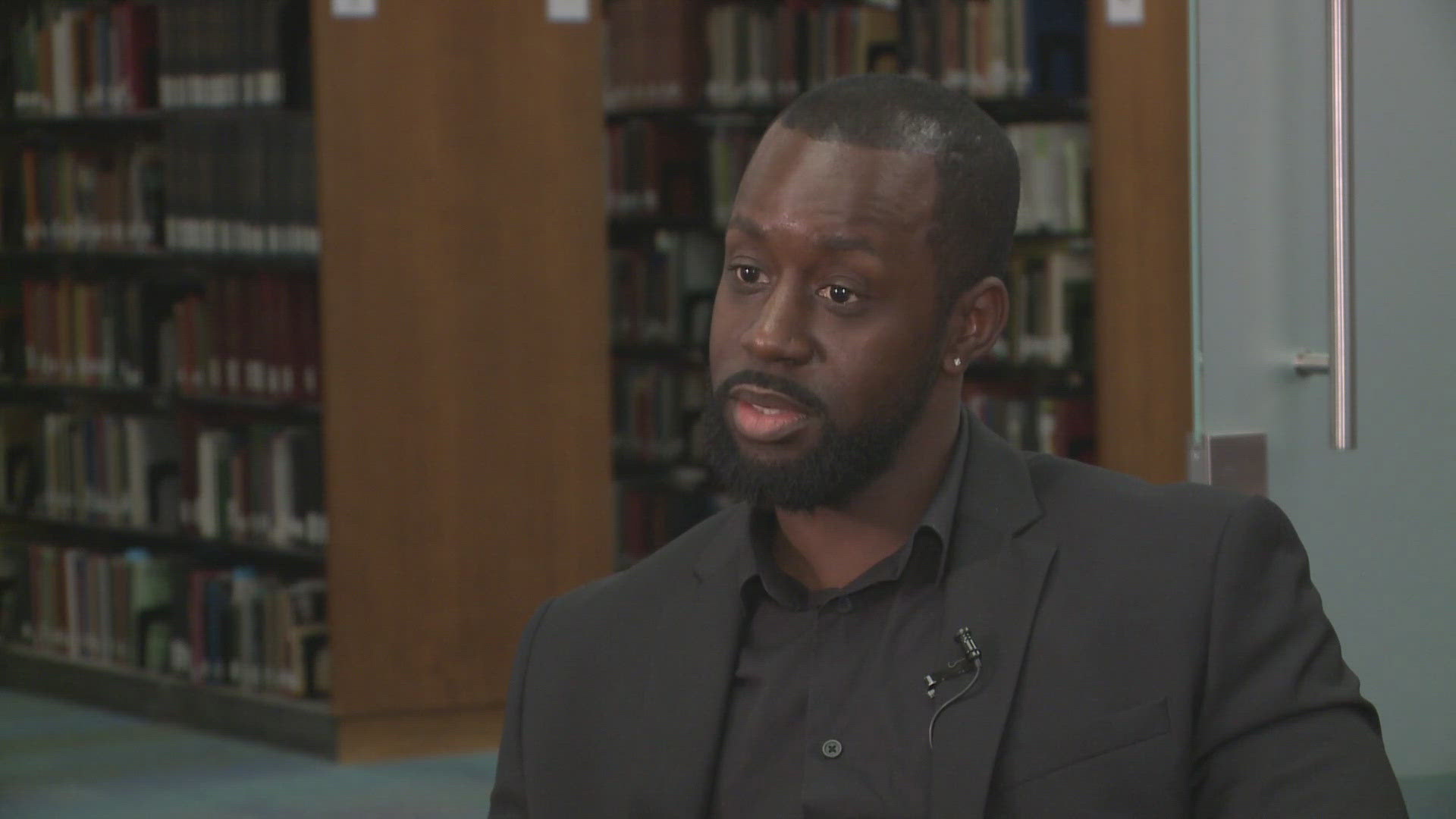COLUMBIA, Mo. — The recent UM System Board of Curators petition to remove racial and ethnic criteria from 53 donated scholarships and funds is a final step in a year-long process that has already removed such criteria from millions of dollars in student aid.
University of Missouri spokesperson Christian Basi said the university awarded $12.3 million in institutional financial aid with a race and ethnicity component in the 2022-23 academic year — about 6.4% of the university’s financial aid budget.
In the same year, Basi said the university awarded $457,000 in endowed donor scholarships that had a race and ethnicity component. This made up about 2.3% of money from endowed scholarships across the University of Missouri System.
But after the U.S. Supreme Court’s June 2023 ruling that outlawed race-based admissions — and Missouri Attorney General Andrew Bailey’s same-day letter expanding that standard to scholarships, programs and employment — the system immediately started removing racial or ethnic criteria from institutional scholarships.
Basi said the university also started reviewing and altering race-based scholarships that are facilitated through endowments or donations.
“Many of the existing endowments already had a legal clause in them that allows us to change criteria, or other aspects of the gift, if those aspects become illegal,” Basi said.
But some of the endowments didn’t have that legal clause. So, the university had to seek permission from those donors to change the scholarship criteria. Basi said that of the donors the university tried to contact, 53 were unreachable. This was a small amount compared to the number of endowment funds they had already altered or sought permission to alter.
Now, the university is asking the 13th Circuit Court for Boone County to allow the removal of racial and ethnic criteria without input from the remaining 53 donors.
“There’s a long history of modification of gifts, and the petition explains the circumstances where it becomes unlawful or wasteful or impractical,” said Adrienne Davis, the William M. Van Cleve Professor of Law at Washington University. “An easy example is if someone made a gift to eradicate polio, and then polio gets eradicated. What do you do after that?”
But Davis said both the Missouri Attorney General and the UM System have applied a broad interpretation of the Supreme Court’s Students for Fair Admissions, Inc. v. President and Fellows of Harvard College ruling. She said the petition will likely succeed, but that the effort isn’t necessary.
“It’s certainly not required at this point, because the scope of the decision only applies to admissions, not to scholarships, and certainly not to private gifts for scholarships at issue,” Davis said.
Gifts listed in the petition include funds like the Richard A. Holmes, M.D. Minority Medical Student Scholarship Fund, which was established in honor of Dr. Holmes after he died in July 2016. According to the Mizzou Give Direct website, Holmes was the first African American professor at the MU School of Medicine, and the scholarship named in his honor is meant to “further the education of medical students, particularly African American students and those seeking to care for the underserved.”
Another scholarship in the MU School of Medicine listed in the petition is the Doud Scholarship, which is meant to be given to “applicants of Irish descent.”
One person who set up an endowment fund for students in a racial minority spoke with KBIA and said he is not pleased with the proposed changes to the original endowment agreement. He requested to remain anonymous out of concern for how his perspective might affect the way the university works with him moving forward.
“I think the contract that they put in front of us is heavy-handed,” he said. His main concern was that the new contract does not provide as much detail about how the funds would be used, in comparison to their previous contract.
Basi said instead of awarding based on racial or ethnic criteria, the university will likely look at increasing the amount of money given to students who show financial need and/or who are first generation.
Jazlen Durgins is a former MU accelerated nursing student who benefited from a scholarship administered through the Mizzou Alumni Association. She said it was geared toward Black students from certain parts of St. Louis and paid for 50% of her student loan balance. To Durgins, specificity to marginalized communities matters.
“It is common knowledge that Black and brown students are at a disadvantage economically and systematically when compared to their white counterparts,” Durgins wrote in an email. She is currently a Neonatal Intensive Care Unit nurse. “Because of all the odds against us, we need some sort of way to get ahead. Scholarships help so many students pay for school and it’s still not even enough. I fear that this new policy will lead to a decline in Black/brown students being able to be admitted into these institutions and also finishing their degree.”
Davis said there are other options the university could have taken in response to the Supreme Court ruling last June.
“It could have sort of sat and said, ‘We’re going to see what happens with this, with the interpretation of the Supreme Court case. Right now, it’s only about admissions,’” Davis said.
Justin Draeger, president and CEO of the National Association of Student Financial Aid Administrators, took a similar stance. He told Inside Higher Education in July 2023 that the association did not advise the decision the UM System made.
Students who received racial or ethnic-based awards before the SCOTUS ruling will continue to receive them until they graduate, leave the UM System or fall behind in their scholarship’s requirements. The incoming Fall 2024 class will be the first fall class since the SCOTUS ruling to arrive without access to scholarships with racial or ethnic criteria.
As current students using racial or ethnic-based awards phase out of the university, Basi said more of those funds will become available and re-purposed, likely to scholarships awarded to low-income and/or first-generation students. He added that students and families can reach out to financial aid if they need assistance.
“None of these scholarships are being discontinued,” Basi said. “We’re ensuring that money is available for students in the future to assist them with their costs in attending any one of the University of Missouri System universities.”
Davis said that though the petition on the remaining 53 scholarships with racial and ethnic criteria will likely succeed, donors could file their own petition to have the gifts returned to them after the current petition is resolved.
“We’ve seen this before, where universities have, for whatever reason, said that they can no longer honor a gift, and the donors, family, their children or grandchildren then petition to have the gift returned, or the gift forfeited,” Davis said.
Steven Hoffmann, an attorney in St. Louis, said it could take months for the university’s petition to be resolved.
This story from the Missouri Independent is published on KSDK.com under the Creative Commons license. The Missouri Independent is a nonpartisan, nonprofit news organization covering state government, politics and policy.
To watch 5 On Your Side broadcasts or reports 24/7, 5 On Your Side is always streaming on 5+. Download for free on Roku, Amazon Fire TV or the Apple TV App Store.



